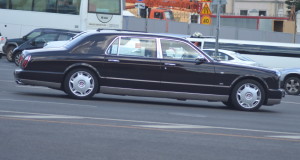Travelling is expensive. Flights, hotels, rental cars, restaurants, insurance and currency conversion, all take a toll on our budgets. But help is on the way. Credit cards can offer several benefits to help cardholders save significant sums of money while travelling, here are a few of the most valuable:
1. Credit Card Welcome Bonus Points:
The most obvious travel benefit credit cards offer are travel rewards points. The initial sign-up bonus most rewards credit cards offer to incent people to apply provides massive value. In fact, our recent survey of sign-up bonus offers shows that credit card issuers are giving away between 15,000 to 40,000 points just to sign-up and activate their card – that’s the equivalent to between $175 and $450, a huge savings.
The real lesson is, churn your credit cards so that you can collect as many sign-up bonus offers as possible. Why spend $40,000 on your credit card to earn 40,000 points, when you can just apply for a new rewards credit card and get 40,000 points? Do that a few times a year, on top of your points derived from spend, and you’ll be well ahead of the game.
2. Travel Insurance:
Many of us apply for supplemental travel insurances when we travel. Such coverages might include travel accident, trip cancellation, trip interruption, lost baggage, travel medical, and car rental insurance. The costs for these insurances can be a fortune. Car rental insurance alone can cost $20 a day. On a 4 day trip that’s $80. Trip cancellation – cost of $150 to $300 per trip, depending on the value of the trip and the provider. Travel medical? An annual plan for a single person can cost as much as $150 per year. The good news is many credit cards include these travel coverages as part of their benefits, at no extra cost, as long as you book your travel on your credit card. All told, if we travel a few times per year, especially out of country, your credit card could save you up to $800in value per year.
3. Foreign Currency Conversion:
How many people get stuck paying obnoxiously high foreign conversion fees at the Foreign Exchange Bureau, or think they’re saving big by exchanging their money at their retail bank? The truth is, if you do it either of those ways you’ll be paying an additional 2% to 8% over and above the market exchange rate. If you use a credit card that charges foreign transaction fees, you’ll typically pay 2.5% to 3% for each foreign transaction, on top of the market rate. The solution? More and more issuers are offering no foreign transaction fee credit cards. That’s 0% mark-up on the market rate, which is a phenomenal deal. If you were to spend $8,000 on foreign travel, that’s a savings of $200 in your pocket.
Hopefully these tips helped you discover a few new strategies to make travel a little cheaper and more affordable.
 Living There
Living There


